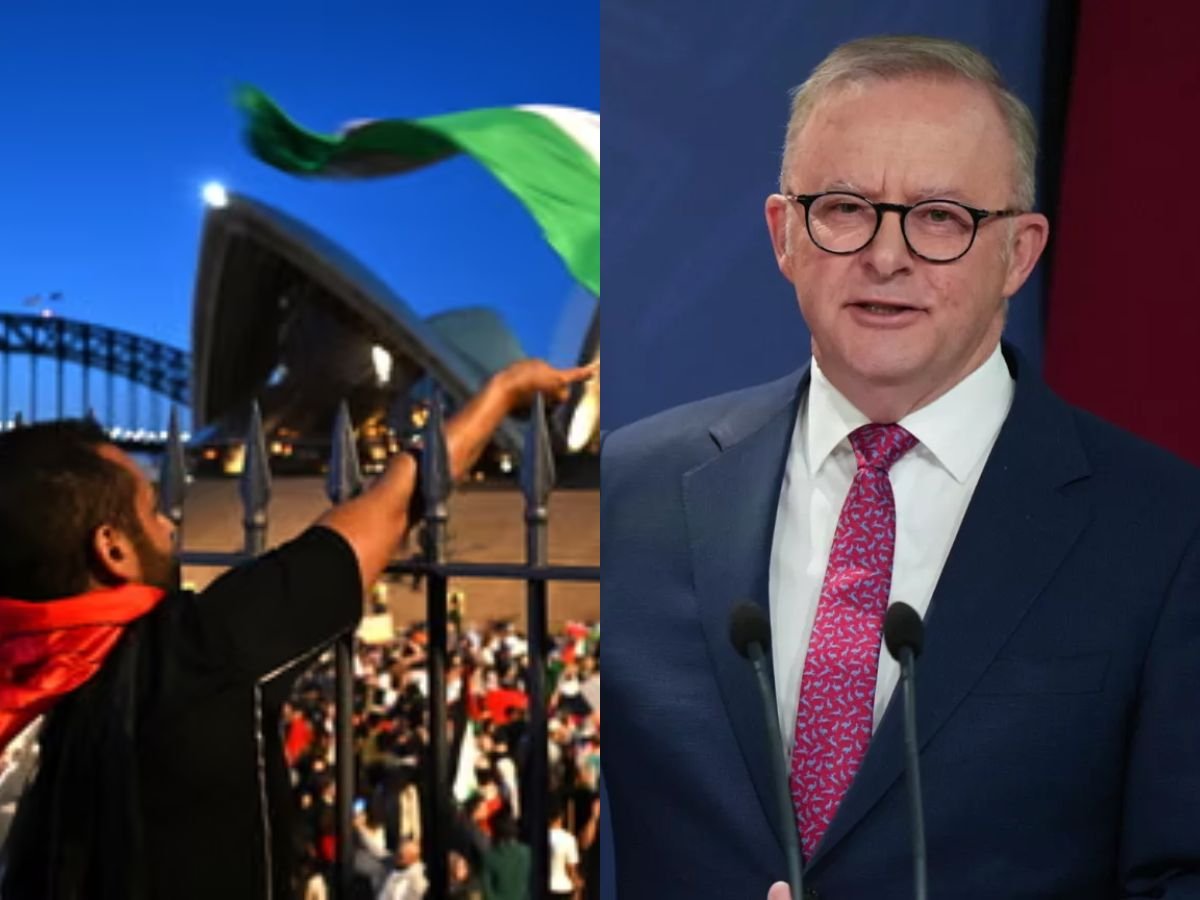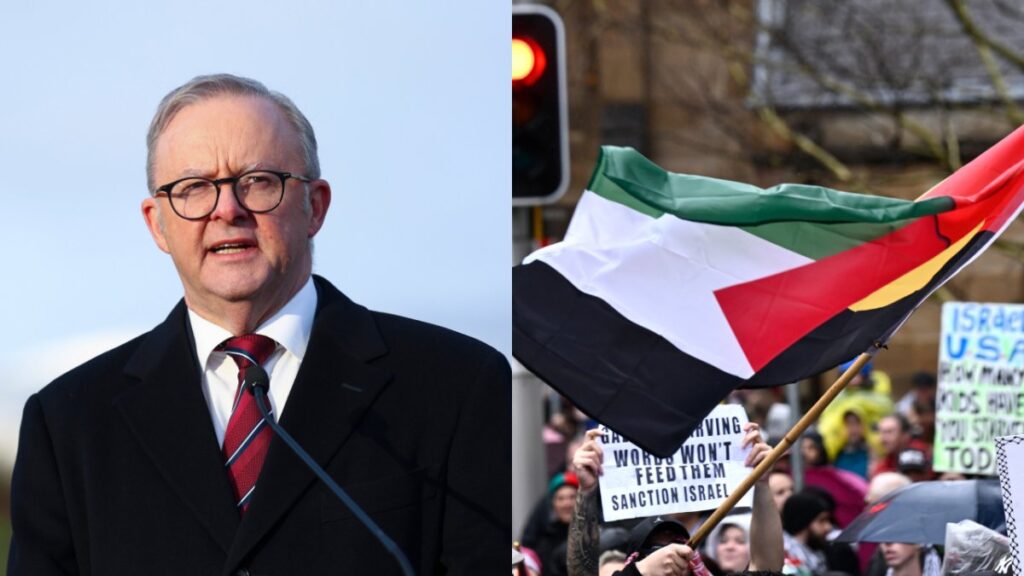Australia to Recognise Palestinian State, Dividing Community
Australia’s decision to formally recognise a Palestinian state has sparked mixed reactions within the community, with both supporters and critics of the move speaking out.
Prime Minister Anthony Albanese announced on Monday that Australia would recognise a Palestinian state at the United Nations General Assembly next month, provided that the terrorist group Hamas has no role in its governance.
The move has been welcomed by some, including Mohamed El Helou, a Palestinian who lost hundreds of family members in Gaza.
He described the decision as “important” and stated that it would support the two-state solution and contribute to ending wars and achieving stability in the Middle East.

Others, such as Zaenab Yusuf, also expressed gratitude for the recognition, but noted that it was “a bit too late” and that the Australian government needed to sanction and cut ties with the Israeli government.
Divided Opinion
However, not everyone is pleased with the decision.
Alex Ryvchin, co-CEO of the Executive Council of Australian Jewry, expressed disappointment and stated that the recognition of a Palestinian state would not achieve peace in the region.
He argued that a Palestinian state would lack agreed borders, a single government in effective control of its territory, and the capacity to live in peace with its neighbours.
Nasser Mashni, president of the Australian Palestine Advocacy Network (APAN), also dismissed the recognition as “meaningless” without Australia cutting ties with Israel.
He claimed that Australia continues to trade, supply arms, and have diplomatic relations with Israel, thereby diplomatically protecting and encouraging other states to normalise with Israel.
International Context
Australia’s move follows similar announcements from the United Kingdom, France, and Canada.
Currently, 147 out of 193 UN member states recognise Palestine as a sovereign state, with the notable exception of the United States, Israel’s most influential ally.
The recognition of a Palestinian state has been a long-standing issue, with momentum building internationally for countries to take this step.
As Susan Wahhab, president and co-founder of Palestinian Christians in Australia, stated, recognising the state of Palestine acknowledges the existence of Palestinians and might end “the genocide and the starvation”.
Wahhab also called for sanctions to be imposed on Israel, which would put pressure on the country to change its course and end the war in Gaza.

